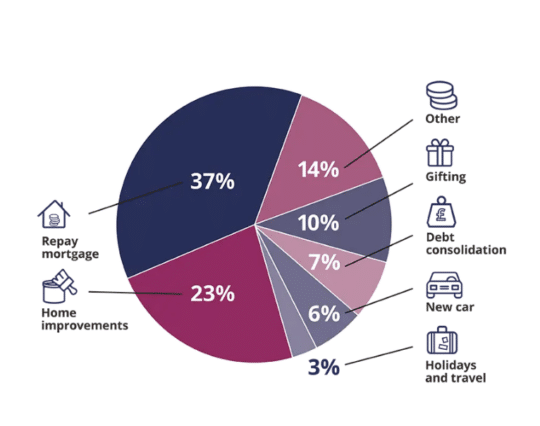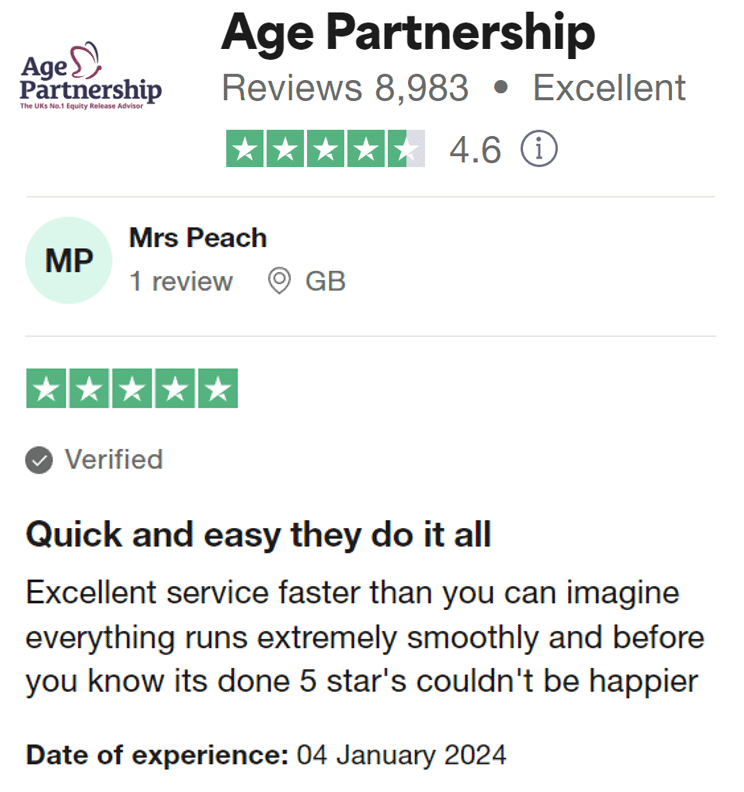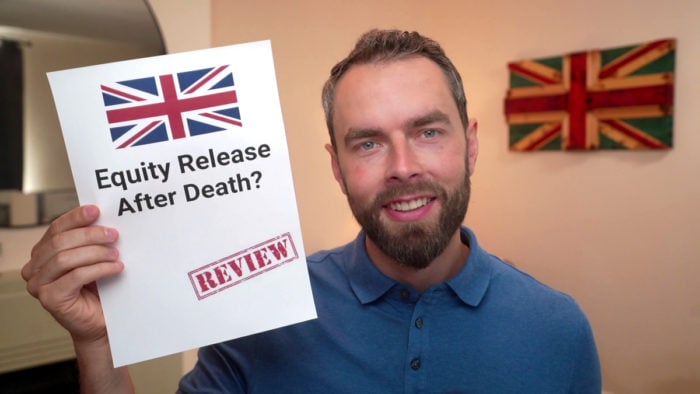Can You Get Equity Release on a Flat? – All You Need to Know
Our preferred equity release adviser is Age Partnership. For free and impartial money advice you can visit MoneyHelper.

Our preferred equity release adviser is Age Partnership. For free and impartial money advice you can visit MoneyHelper.
Are you curious to find out if you can get equity release on a flat in the UK? If so, you’re in the right place. This guide will provide clear and simple answers to your questions. Each month, more than 7,000 people visit our site for guidance on matters like this.
In this guide, we’ll cover:
- How you can take equity out of your flat.
- The difference between a freehold and leasehold property.
- The ways to get a realistic quote for equity release.
- Who can qualify for equity release on a flat.
- The possible reasons for being refused equity release.
We know that the topic of equity release can seem hard to understand, but there’s no need to worry. Our aim is to give you helpful advice to make things easier. We understand the concerns you might have, and we’re here to provide the facts. By the end of this guide, you’ll have a better grasp of how equity release on a flat works.
Let’s get started.
Can I take equity out of my property?
There are many ways to take equity out of your property. You may be able to do this with home equity loans and second charge mortgages, or older people can choose equity release schemes, including a lifetime mortgage.
The two types of equity release
There are two main ways of releasing equity in the UK, known as lifetime mortgages and home reversion schemes.
A lifetime mortgage is the most common. You take out a mortgage against a percentage of your property with a fixed rate of interest. But instead of making any payments whatsoever, the debt keeps rolling up and is paid after you die or move into long-term care by selling the property from your estate. You continue living in your home and cannot be kicked out, and you can never owe more from your estate than the sale value of your property, providing some reassurances to will beneficiaries. You can even opt in to make interest repayments to reduce the total debt.
A reversion scheme is somewhat different. The company provides you with a loan for a percentage of your property’s sale value when it is sold (after death or after moving into aged care). The loan significantly undervalues the percentage of the property ‘bought’ but no interest is charged. This is so the lender can protect itself from declining property values and to make a profit.
» TAKE ACTION NOW: Find out how much equity you could release
Is releasing equity possible on flats?
Most equity release applications are to release equity on houses, so is it possible to release equity on a flat in the UK?
The simple answer to this question is yes. You can release equity on a flat. It gets a little trickier depending on if it is a freehold flat or a leasehold flat. We discuss these scenarios below. You should always seek financial advice before making a decision.
How equity release could help
More than 2 million people have used Age Partnership to release equity since 2004.
How your money is up to you, but here’s what their customers do…
Find out how much equity you could release by clicking the button below.
In partnership with Age Partnership.
Can I do it if I own a freehold flat?
You can take out an equity release scheme on freehold flats. Because you own the flat and the land it is built on, it is relatively straightforward to get equity release on the freehold flat. However, you will also need to own the leasehold.
How about equity on a leasehold flat?
It’s also possible to get an equity release scheme on some leasehold flats with some equity release lenders. The lender will consider how long you have left on your current lease before making a decision. They will also consider any ground rent charges and other clauses applicable when the property is to be sold on.
What if my lease length is too short?
Equity release providers generally need your lease to be of 75 years minimum to be allowed to use an equity release scheme. However, others may require a longer leasehold up to 125 years. If your lease is deemed too short, the lender will not be willing to let you use equity release with them. You will need to get a lease extension to be able to release equity with most lenders.
Join thousands of others who release equity
Age Partnership have helped over 2 million people release equity from their home.

Mrs Wareham
“I am more than pleased to have taken out Equity Release with Age Partnership.”
Reviews shown are for Age Partnership. Search powered by Age Partnership.
Can you be refused equity release?
As mentioned above, your equity release application can be refused on some leasehold properties if the length of your lease is too short. Any lease below 100 years is at greater risk of being a problem for equity release companies.
But this isn’t the only reason you can be refused equity release.
Companies can also reject your equity release applications for:
- Having a flat roof
- Being located in a flood risk area
- Non-standard construction
- The presence of asbestos
- Or even close proximity to commercial buildings
You cannot be rejected because of a poor credit rating.
Things to consider
Equity release will involve a home reversion or a lifetime mortgage, which is secured against your property and will reduce the value of your estate and impact funding long-term care. Our equity release partner, Age Partnership provides a personalised illustration to explain the full details. The money you release, plus the accrued interest is then repaid when you die or move into long-term care. Advice is required before proceeding with equity release and any existing mortgage must be repaid. Age Partnership provide initial advice for free and without obligation. Only if your case completes would Age Partnership’s advice fee of £1,895 be payable. Other lender and solicitor fees may apply.


